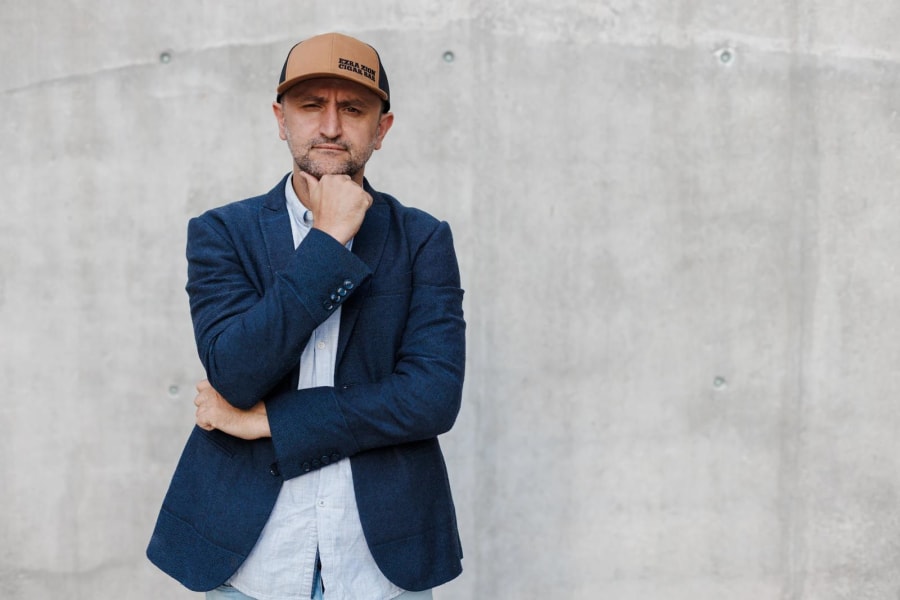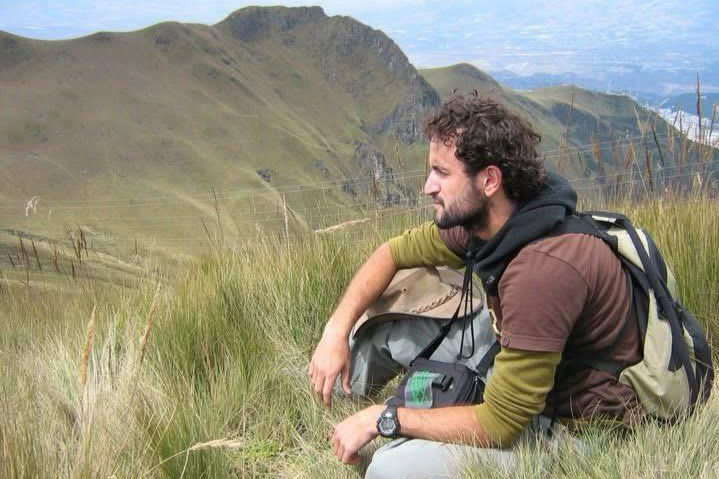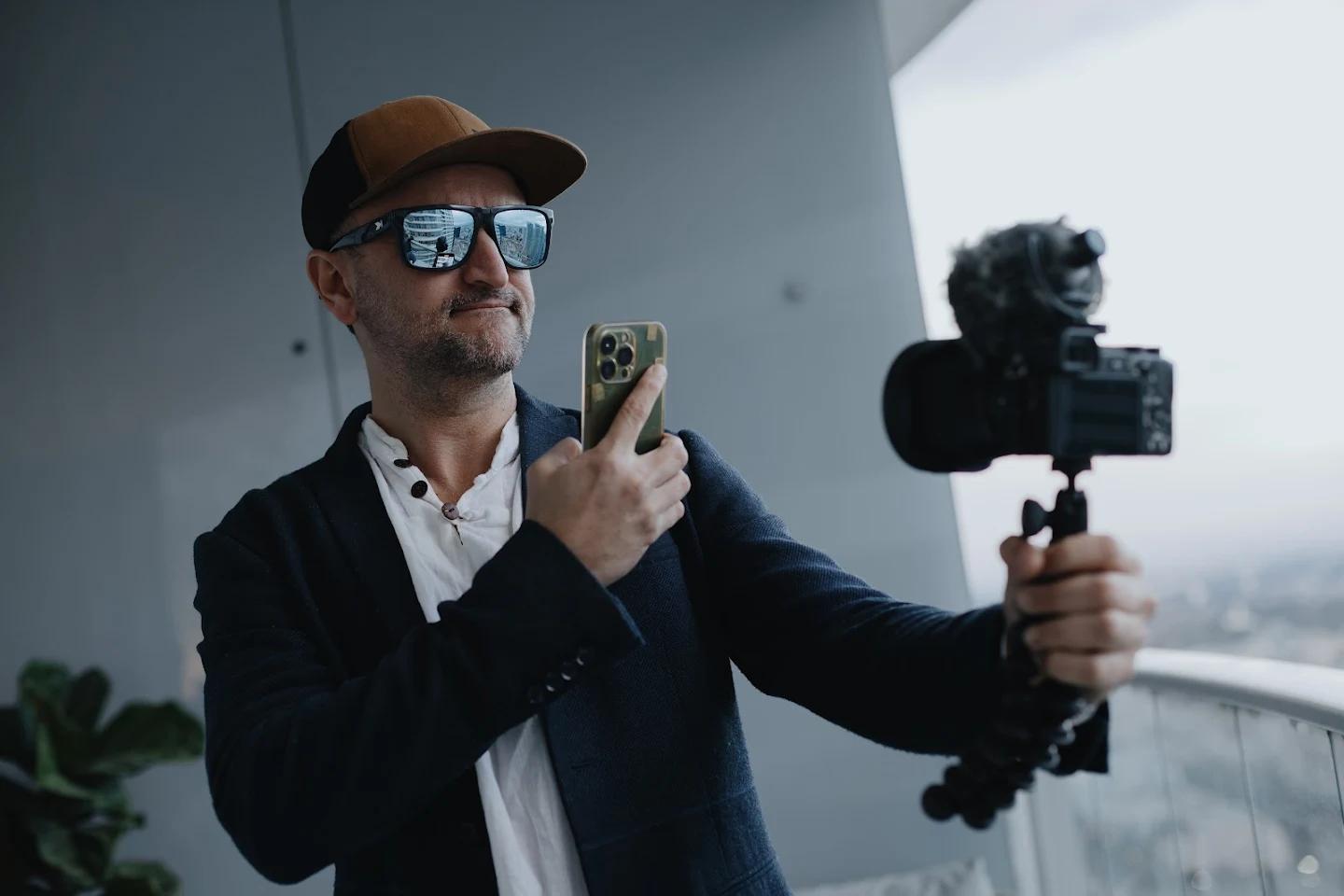A Druze voice for Israel: Mansur Ashkar’s journey of faith, service and courage
Ashkar shares with ALL ISRAEL NEWS what it means to be Druze and how faith in Jesus has guided him

Mansur Ashkar is a Druze Israeli with deep roots in the land of Israel. His grandfather, Mohsen Daghash, was the first high ranking Druze officer in the IDF, a friend of Yitzhak Rabin, and the first non-Jewish person to light a torch for Independence Day in 1975.
Daghash passed on his love of Israel to his descendants and Ashkar was raised with a profound love of the land. It is perhaps less surprising then, that he has become one of the most loved voices speaking out on behalf of Israel since the Oct. 7, 2023, attacks.
In this interview with ALL ISRAEL NEWS, Ashkar shares more about what it means to be Druze, how faith in Jesus has guided him, and what he makes of current events in the Middle East.
“I grew up with a very, very strong connection and bond to Israel and to the country, and my mom was named Medina, which means 'the country,' basically. I grew up in a Druze family in a Druze village, Isfiya, in the Carmel,” he begins.
“I navigated between Isfyia and Maghar, by the Sea of Galilee. The meaning of Maghar is cave. My grandfather and his relatives there were living in caves, and he was one of the first ones to actually get a house.”

“As a young kid already, I was very interested in religions. So I used to pray to God,” he explained. However, he was eager to cover all the bases: “I said, you know what, one of them is probably right, if not a few of them, so I'm just gonna pray to all of them.”
He started praying to the God of Moses, the God of Jesus, of Muhammad, and of the Druze, and even the Hindus. “I started studying it, you know, as a kid, fascinated, and that's where I met Christians. That was the first time that I saw people that not only the theology of the faith but the practice made sense to me. You know, it felt to me like, okay, that's if you really believe in God, that's how you should live, not just with traditional clothes and doing things because of religion, but actually because you really believe in it. You have a personal relationship with the Creator. And it was the first time that I really saw that, and it really made me very, very fascinated by the church. When I say the church, in Israel we say kehila, a congregation. It wasn't like something with an official - with a pope or something, it was just something very local.”
Ashkar says he grew up “very Druze,” since his grandfather became a religious man. “What I like about the Druze religion is that it's a very advanced religion that is kind of stuck in the past a little bit. They separated religion from state about 1,000 years ago. You don't have to be religious, and most are not religious, they're secular. They're just expected to keep the tradition and to understand, you know, the concept of the unity that they have. That's why most Druze women are not expected to wear a hijab. No one's going to force them.”
Ashkar explained that historically, the Druze religion incorporated many aspects of different faiths in what he called, “religious shopping,” but he appreciates the freedom and family values of the community.
“The Druze people are extremely hospitable, and extremely resilient. They are very tolerant and accepting towards the other, but also know very well how to draw the line, how to draw the boundaries. I think that is something that is very lacking today in so many aspects in our church. I think people don't know where to draw the line.” Mansour expressed his concern that the church had become very worldly, saying it’s OK
for a boat to be in the water, but not for water to be in the boat.
He also has a great passion for the importance of parenting. "If you really want to make the world a better place, guaranteed,” he assured me, “Be a good father, be a good mother. Raise good children. Just be present in their lives because they learn by example and they’re programmed for that, so they need you to be around and lead the way for them. And if you won’t do that, someone else will.”
Ashkar, like all Druze men, was conscripted to serve in the army after high school. Arab Christians and Muslims don’t have to serve in the IDF but the Druze do. “We have a blood covenant, a life covenant,” he explains.
When asked if the experience of serving in the army had changed him, he replied, “Absolutely. The army was the first place in Israel that I'm getting a fair opportunity in life.”
Ashkar and his family had moved to the southern city of Eilat where he experienced discrimination and poverty, and life had been a struggle. When he got his papers from the army he had a big shock: “I got picked to become a fighter pilot and I thought that this was a mistake. Literally, I thought like there's no way, like, that I'm smart enough,” he said. “I literally thought it was a mistake, so I went for these exams. They had a lot of psychological, mental and IQ exams and I did them and I passed all of them. And every step on the way, I thought, I'm gonna be kicked out. It's a mistake.”
It was no mistake, however. Additionally, Ashkar wanted to serve in the special forces, so he went on to join another program. “That's where I felt like, wow, you're in a system that is doing its best to stay pure of corruption and to promote real talent. And I felt very heard and very appreciated there.”
Ashkar met people from all over the country for the first time: “Ethiopians, religious Jews, secular Jews, Christians, Arabs, you know, and no one cared, and I loved that. No one cared who you were, where you were from, just that you're a good person, and you're not an idiot.”
“By the age of 21, I was already an officer in charge of millions of dollars of equipment and the lives of thousands of people. And I was very overwhelmed by the level of training and experience that you get at that age, and when I did the officer training. It was very academic, about leadership, and also the officer training in Israel is rooted in biblical training. They had a general that went and studied the Bible. and then he brought it back and he said, we're gonna write the foundation of the IDF from the Bible. We're going to take the leadership lessons, so the IDF is built on biblical leadership.”

He gave the example of David charging bravely toward Goliath to fight him as one of the principles the IDF teaches from the Bible. “He did not back off and ran away, he immediately ran and grabbed the rock and threw it. So he saw the danger, and he immediately attacked. That's a foundational thing in the IDF. Whenever you're getting shot at, you don't back off.”
According to Ashkar, a large banner featuring a verse from the story of Gideon was displayed at the officer training course: “Look at me, and do likewise” (Judges 7:17), giving the biblical basis for leading by example. "Our officers are always going to be role models and examples and we are pretty much one of the only armies that has our officers in the front,” he explains.
“Strategically, it may not be the right thing to do – we lose more officers than other armies. Usually, the soldiers are in the front and officers are in the back, but in Israel, they say that as an officer, you would never ask something from your soldier that you're not willing to do.”
Ashkar would also draw from the New Testament for lessons in leadership. “I always used to think, how can I learn from Jesus to become a better officer in a special forces? My job is very violent. Jesus was a lot about turning the other cheek and loving your enemy… I can learn from David, from Joshua… but how can I learn from Jesus? And then I came and I said, actually Jesus was the perfect leader because when He came as God who came in flesh, He went and He washed the feet of his disciples sending them a very clear leadership lesson. If I'm willing to wash the feet of my disciples, then who are you not to wash one another’s feet?” He added, “We are here to serve and we are here to lead by example.”
After several years in the army, Ashkar went into security on cruise ships, and has a great love of travel and adventure. It was while he was in Uganda trying to help build a school in an impoverished village that a friend suggested making videos as a way of raising funds. “I was making one video every two months, maybe, but I was not really dedicated to it. I had like 23 subscribers,” he admits. But slowly he became more committed to the project, gaining the skills as he went. It was just days after he left his job, committing to the enterprise full time, that Oct. 7 hit.
“I wanted to go back to Israel to join but my friends were fighting already, told me don't come right now… So I said, okay, I'm not gonna sit idle, I'm going to start making a video, using my voice. And literally my first video goes like this: my friends right now are moving house to house, trying to fight these terrorists and save lives. Let me tell you what it means to be an Israeli Arab….”
“I knew antisemitism is common, and that the lies would come and try to portray Israel as a bad country that’s just racist, and it is exactly the opposite… Israel is the only that is not. But then I was really hesitant. I said, wow, if I do this, I'm going to commit career suicide before I even started.”
“I thought about it for like maybe a minute, and I said, you know what? I don't care. Let them cancel me. Everybody thinks when they watch Schindler’s List or the Holocaust films, ‘I would have hidden the Jews, I would have fought against the Nazis.’ No one thinks they would have been the cowards that either joined them or chose to do nothing. But you know what, it’s coming again. The Jews are being attacked. Are we going to say it's okay to rape their daughters, to do this, to do that to them? And one day my kid is going to ask me… what did you do? So I said, I'm going to stand with them.”
“I did like 90 videos – 90 days every day. I edited, I translated, had sleepless nights, I cried because I was so in it… thought it would be done like in two months.” After those 90 days, Ashkar realized it would be more sustainable to do shorts on Instagram. “It's easy to make a 60-second video on Instagram, so I did it every day. It was easy for me because I was already hard trained,” he explained. “I knew how to talk to a camera and I knew how to edit. And that's when it exploded. That's when social media, my account suddenly went from 200 Instagram followers and suddenly boom, it went to 14,000. 20,000 - 30,000 - 40,000.”
“I honestly thought that I'm only going to get hate and threats… and then I suddenly got so much support, mostly from Jews from around the world who felt like no one was speaking on their behalf, and that the whole world hates them. And it was overwhelming.”
Ashkar shared what his mom, who has featured in some of his videos, thinks of his new vocation. “She just said, I'm going to help my son. She's very proud of me because she feels that I'm doing the same thing that my grandfather before me did, which is fighting for my people, for the Druze, for the Jews, and for Israel. So, I guess she's a very proud mom.”

Jo Elizabeth has a great interest in politics and cultural developments, studying Social Policy for her first degree and gaining a Masters in Jewish Philosophy from Haifa University, but she loves to write about the Bible and its primary subject, the God of Israel. As a writer, Jo spends her time between the UK and Jerusalem, Israel.
You might also like to read this:

















